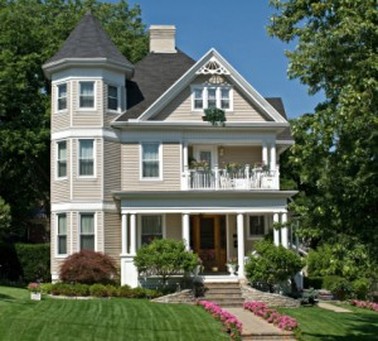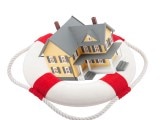 Get A Cheap Home Owner Insurance Quote Get A Cheap Home Owner Insurance Quote Home owner insurance is not always required. If you live in a home you own out right on Cape Cod, Massachusetts, with no lenders or financers you probably are not required to purchase a home owner’s insurance policy. Therefore, you can avoid that extra insurance bill every month. Good for you, right? Wrong. Home owner’s insurance on Cape Cod, MA may seem like just another monthly bill; however, if you find yourself in a situation in which you’ve been robbed or your home has suffered water damage, fire damage, or any kind of damage from weather elements, those extra monthly insurance bills will suddenly seem like a wise idea. And, if your neighbor comes knocking at your door one day, only to fall down an icy stoop? Well, those extra monthly insurance bills will suddenly seem like an even wiser idea. So, how can you get a cheap home owner insurance quote to protect yourself from tragedies and accidents? It’s simple, really – you just need to know how to cut corners; and I don’t been in a Scrooge-like, penny pinching way. First, make indoor home improvements. This means checking out your electrical system, which could make your home a fire hazard, and plumbing system, which could make your home susceptible to water damage. Consider installing durable windows and sturdier locks. A safety alarm system isn’t a bad idea, either. Next, make some outdoor home improvements. Fix any creaky steps, loose stones or concrete in your walkway, loose shutters and shingles, and get rid of any scrap metal you plan to build something with, but neighborhood kid might want to use as a plaything. Finally, store all of your very precious and irreplaceable valuables in a safety deposit box in the bank. Period. Making these safety changes will show home owner insurance companies you’re serious about keeping your home, your family, your valuables, and your visitors safe, thus encouraging them to give you a cheap home owner insurance quote.
0 Comments
If you have been thinking about buying a security system, you have probably been trying to figure out if such a thing is really worth it. You have probably been trying to decide if you want to pay the money every month. It does not sound like much money, but people will often pass on a security system because their home has never been broken into before and they hope that streak will continue. If you keep reading, however, you will see that there are a few reasons that having a system is a good idea. You will even find that it can even affect your home insurance in Florida. You need to make provision for deductibles. The amount you would have to pay for each peril is not the same in all states. The more probable it is for a peril to happen in a state, the higher the deductible it will demand. Philadelphia home insurance: You can make your shopping much more fruitful by studying consumer guides. They will give you an idea of average rates. This is not counting the fact that they will give you a few tips that will make it easy get adequate coverage at the lowest price. Make sure your motor home has the latest in not only door locks and security but in window locks as well. Making your motor home less attractive to burglars can save you money every month. It's best to choose an insurance company that's built a strong reputation in Home Insurance. You won't like it if you settle for a company that will leave you stranded midway. A clear explanation of your coverage. Once you put in a claim, you should get a clear, up front explanation of your coverages. Your policy limits, deductibles and benefits should be told to you right away by your claims adjuster. If you can't get this information from anyone, it's time to file a complaint and change insurance companies. Sometimes you can save money just by customizing an individual family plan to fit your family's needs. You may not always get a chance to do that if the plan is too generic, but there should be some flexibility in there. If you need other forms of coverage like dental or eye care, you will need to add that to your policy. This will only cover doctor's visits and things of that nature. You can talk to an insurance agent about specific savings that may be in store for you based on your family's medical history. Just expect to pay more if you have people in your family with severe medical conditions.  Best Cape Cod Home Insurance - A Few Tips To Save Money Best Cape Cod Home Insurance - A Few Tips To Save Money Call (508)540-2601 for the best alternative to the Massachusetts Property Insurance Underwriting Association, better known as the 'Fair Plan.' The Massachusetts Property Insurance Underwriting Association (MPIUA) is a residual market insurance association in which all companies writing basic property insurance in the Commonwealth are required to participate with losses shared among the member companies on a premium volume basis. Responding to Federal Legislation, the Massachusetts Legislature in 1968 called for an urban area insurance placement facility and thereby gave rise to MPIUA. MPIUA is also known as FAIR Plan (Fair Access to Insurance Requirements). The FAIR Plan operates similar to that of a normal insurance company in that it underwrites and inspects risks, accepts premium, issues policies and adjusts claims. It has a seasoned professional staff, which provides exceptional service to its clientele. FAIR Plans are the outgrowth of the national emergency created by three years of rioting in American cities, beginning with the Watts outbreak in 1965. When the rioting of the 1960s suddenly mushroomed to disastrous proportions, the companies found themselves in the position of having to pay losses in excess of $100 million, on which they had collected no specific premium. Although the companies paid these losses, their capacity was severely taxed and their normal riot reinsurance market had dried up. It became obvious that emergency revisions of underwriting and reinsurance procedures were necessary for the future protection of urban property and urban existence. Is there such a thing as best home insurance? There may be a better question. Is home insurance really that expensive? Homeowner’s insurance may very well be the consumer’s best buy when it comes to insurance. There are multiple benefits and features that make the home policy unique. Most everything that the homeowner owns including the dwelling can be covered in some way by homeowner’s insurance. When you think of the magnitude of the coverage afforded by homeowner’s insurance versus the premium paid then you would have to agree that homeowner’s insurance is a very good buy. The rates on property insurance in general, have increased over the last ten years. Much of that has to with increased catastrophes like the hurricanes in Florida. The toxic mold problem that originated out west has also caused premiums to increase on a national basis. The home insurance buyer really needs to focus on a few areas to get the most for the premium dollars paid. Accurate Dwelling Amount – This is the first most critical decision that you will make. The square footage of your dwelling has to be correct in establishing the replacement value of your home. The market value is of little use to you when you purchase insurance to rebuild the structure. Replacement cost is better for homes that have been built within the last 40 years. Check with your insurance company underwriting guidelines. Replacement Cost or Actual Cash Value – This facet of your home insurance policy should be clearly understood. Replacement cost insurance on both your dwelling and its contents means that the insurance company will rebuild or replace your loss with like kind and quality. Actual Cash Value will calculate the replacement cost and then subtract for depreciation. The actual cash value policy is cheaper but you will have to come up with the depreciate amount out of your own pocket. Deductible – Higher deductibles bring your premium down substantially. $500 to $1000 deductibles are common. This is a huge savings to you over the years and is your most valuable tool in lowering the cost. The amount you are asked to pay when you ask for a quote for home insurance is determined by how big a risk the company think you are. In giving you a quote they take into account many things, such as how secure your property is, the area in which you live and the cost of the possessions that they would have to pay to replace if some mishap occurred. However there are ways in which you can help to lower the premium quoted with the biggest being shopping around either yourself or with a broker’s help, for a policy.
When looking for insurance make sure that you get at least four or five quotes from different companies as policies and premiums do vary from company to company. All policies are different and will have exclusions within them, so it is essential that you understand what you are and are not covered for. Where you live will affect the price that you have to pay for your insurance, while you cannot change your address there are some things you can do to help lower the cost of your insurance. Installing more security is one of the best ways you can reduce the premium, insurance companies will list certain brands of alarms for instance which are considered the best and by having these you can cut the cost of your premium. If you are thinking of making any big home improvements such as adding a conservatory then take this into account, the more value that you add onto the property then the higher the premium will be. Also take into account any patio furniture or garden equipment which is kept outside, some policies will include this in their policy while others insist that you take an addition to the policy in order to cover them. If you have items in your home which are of particular value then make a note of these, any items which are classed as antique or say any collections such as records or art, might not be included in your policy unless you have particularly stated these at the out set of the policy. Also check if computer equipment is covered in the policy, if you have more than one home computer then they might need adding to the policy as extras, some policies say that computer equipment such as printers and scanners are classed as commercial or business equipment and as such are not covered by the standard policy. |
better Insurance
|
-
HOME
- Send me a Home Insurance Quote >
- FLOOD Insurance, Massachusetts >
- Cape Cod Home Insurance
- Pay Your Home Insurance Bill Online
- Ordinance or Law Coverage
- How to Prevent a Claim on your Home Insurance Policy
- Videos - Cape Cod Real Estate Tips >
- Cape Cod Massachusetts Arbella Insurance Discounts
- Cape Cod Massachusetts Lloyds of London Home Insurance
- Safety Insurance Discounts for Cape Cod, Massachusetts
- MPIUA - MA Property Insurance Underwriting Association "Fair Plan"
- Cape Cod Massachusetts Home Protection Insurance
- Hurricane Preparedness >
-
AUTO
- Send me an Auto Insurance Quote for Cape Cod, Massachusetts
- BOAT Insurance >
- Cape Cod, MA Dept. of Motor Vehicles
- Cape Cod Massachusetts - Report an Auto Insurance Claim
- Auto Insurance Quote - CAR BUYING TIPS : Auto Insurance for Cape Cod, MA
- InControl Driver Training
- Car Insurance for Cape Cod Massachusetts - Arbella Insurance - Send me an Auto Quote >
- Plymouth Rock - Send me an Auto Quote >
- Encompass Insurance Discounts
- Safety Insurance - Send me an Auto Quote >
- Travelers Insurance Discounts
- Progressive Insurance - Send me an Auto Quote
- LIFE
- OFFICES
- ABOUT US
- Stay Home
- Home Insurance Explained
- Agent Login
- Privacy Policy
- Videos - Cape Cod Real Estate Investing, Taxes & Insurance
- Videos - Cape Cod Coastal Real Estate
- Português
Arthur D. Calfee Insurance Agency, Inc. is a friendly local insurance agency proudly offering Massachusetts, Cape Cod and the Islands. A-Excellent AM Best rating, A+ Excellent by the BBB
Using innovative thinking, cutting-edge tools and expert resources at national and local levels, we deliver the best possible outcome on every policy we manage. Need Home Insurance? Easy, Fast, & Secure Home Insurance. Get Free Quotes 100% Online Now! Available 24/7. Affordable Rates. Cover Your Biggest Investments. Get a homeowners insurance quote, find coverage options. We'll help you understand and customize the right home insurance coverage for you.
Home is where your heart is—along with a healthy chunk of your net worth. Get started today with a free homeowner's quote.
Compare home insurance quotes today and save on protection for your biggest investment. Build a Custom Policy & Make the Switch! Our local underwriting professionals focus exclusively on finding the best home insurance, homeowner's insurance, hazard insurance, investment property insurance, flood insurance, flood zone information, vacation home insurance, second home insurance, auto insurance, collector car insurance, business insurance, general liability insurance, property insurance, professional liability insurance, contractor's liability insurance, worker's comp insurance, key man insurance, whole life insurance, term life insurance, group or personal disability, & long-term care insurance policies to patrons in the following Cape Cod, Massachusetts towns, communities and villages: Barnstable, Bourne, Pocasset, Brewster, Buzzards Bay, Centerville, Chatham, Cotuit, Craigville, Dennis, East Dennis, Eastham, Falmouth, East Falmouth, Hatchville, West Falmouth, North Falmouth, Woods Hole, Harwich, Hyannis, Hyannisport, Martha's Vineyard, Nantucket, Marstons Mills, Mashpee, Orleans, Osterville, Provincetown, Sandwich, Sagamore, Sagamore Beach, Truro, Wellfleet, Yarmouth, and Yarmouthport. Real-Time Pricing. Insurance coverage: Wind Damage, Fire Loss, Water Damage. Protect your home and belongings. Low Rates For Your Best Options to Save Money On Great Coverage! Get a quote today. Home insurance helps protect your house and your family.
Using innovative thinking, cutting-edge tools and expert resources at national and local levels, we deliver the best possible outcome on every policy we manage. Need Home Insurance? Easy, Fast, & Secure Home Insurance. Get Free Quotes 100% Online Now! Available 24/7. Affordable Rates. Cover Your Biggest Investments. Get a homeowners insurance quote, find coverage options. We'll help you understand and customize the right home insurance coverage for you.
Home is where your heart is—along with a healthy chunk of your net worth. Get started today with a free homeowner's quote.
Compare home insurance quotes today and save on protection for your biggest investment. Build a Custom Policy & Make the Switch! Our local underwriting professionals focus exclusively on finding the best home insurance, homeowner's insurance, hazard insurance, investment property insurance, flood insurance, flood zone information, vacation home insurance, second home insurance, auto insurance, collector car insurance, business insurance, general liability insurance, property insurance, professional liability insurance, contractor's liability insurance, worker's comp insurance, key man insurance, whole life insurance, term life insurance, group or personal disability, & long-term care insurance policies to patrons in the following Cape Cod, Massachusetts towns, communities and villages: Barnstable, Bourne, Pocasset, Brewster, Buzzards Bay, Centerville, Chatham, Cotuit, Craigville, Dennis, East Dennis, Eastham, Falmouth, East Falmouth, Hatchville, West Falmouth, North Falmouth, Woods Hole, Harwich, Hyannis, Hyannisport, Martha's Vineyard, Nantucket, Marstons Mills, Mashpee, Orleans, Osterville, Provincetown, Sandwich, Sagamore, Sagamore Beach, Truro, Wellfleet, Yarmouth, and Yarmouthport. Real-Time Pricing. Insurance coverage: Wind Damage, Fire Loss, Water Damage. Protect your home and belongings. Low Rates For Your Best Options to Save Money On Great Coverage! Get a quote today. Home insurance helps protect your house and your family.
Testimonials & Endorsements for the Best Insurance Agent on Cape Cod, MA
PHONE: (800) 479-2601 CUSTOMER SUPPORT & SERVICE
Please note: The above is meant as general information to help you understand the different aspects of insurance. This information is not an insurance policy, does not refer to any specific insurance policy, and does not modify any provisions, limitations, or exclusions expressly stated in any insurance policy. Descriptions of all coverages and other features on this page are necessarily brief; in order to fully understand the coverages and other features of a specific insurance policy, we encourage you to read the applicable policy and/or speak to an insurance representative. Coverages and other features vary between insurers, vary by state, and are not available in all states. Whether an accident or other loss is covered is subject to the terms and conditions of the actual insurance policy or policies involved in the claim. References to average or typical premiums, amounts of losses, deductibles, costs of coverages/repair, etc., are illustrative and may not apply to your situation. We are not responsible for the content of any third-party sites linked from this page.
© 2023 Copyright, Arthur D. Calfee Insurance Agency, Inc.
Calfee Cares.® Privacy Policy
Calfee Cares.® Privacy Policy








 RSS Feed
RSS Feed











